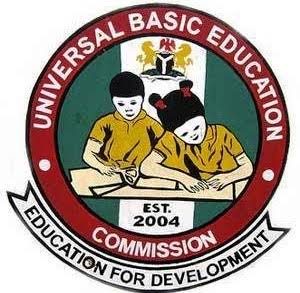
Non-Governmental Organisation, Connected Development (CODE), has expressed concern over the poor quality of projects being implemented under the Universal Basic Education Commission (UBEC) intervention funds in Kaduna State, Northwest, Nigeria.
The NGO’s Senior Programme Manager, Mr Chambers Umezulike, made the observation at a training for education officials in Kaduna on Wednesday.
The training, second in the series was organised by the NGO for Kaduna State Universal Basic Education Board (SUBEB) and Local Government Education officials on data gathering, analysis and dissemination.
Umezulike told the News Agency of Nigeria (NAN) at the side line of the event that the conclusion was based on a feedback from the School Monitoring Team (SMT) that is monitoring UBEC projects in the state.
He explained that the NGO, supported by MacArthur Foundation is tracking the implementation of UBEC intervention funds in 23 selected schools in Jema’a, Kajuru, Kudan and Zangon Kataf Local Government Areas of the state.
He said that the tracking of the projects including renovation, construction, toilets and fencing among others, began middle of 2017.
“Implementation are actually ongoing across the communities, but most of them are of poor quality.
“Feedback from the SMT, comprising Community based organisations, (CBOs), School-Based Management Committees (SBMCs), Nigerian Union of Teachers (NUT) and other stakeholders indicated that the contractors are cutting corners to make more profits.
“Their reports showed that the contractors in most cases are not using the right cement mixture; not using the recommended ceiling and roofing sheets among others.
“Our findings equally revealed that the contractors do not carry community members along during project implementation. This is a huge gap in terms of sustainability, “he said.
The programme manager also noted the need for needs assessment for communities to identify what is needed in their schools during the design of action plan by SUBEB.
He attributed the poor quality of projects implementation to lack of effective monitoring, particularly by host community due to non-involvement.
He said that the findings would be submitted to SUBEB for immediate action, adding that the board has been very cooperative in ensuring maximum use of government resources.
According to him, the projects tracking, which would last for three years was designed to enhance citizens’ participation in the spending of UBEC funds.
“We are equally empowering local communities with relevant information about government financing and spending for them to monitor and track implementation for transparency and accountability in capital expenditure.
“Our main goals is to enhance citizens’ participation by ensuring effective service delivery; strengthen monitoring agents and create a link between government, citizens and media organisations.”
On his part, Kaduna SUBEB’s Acting Director of Social Mobilisation, Malam Ibrahim Aminu assured the readiness of the board to work with communities in implementing the projects.
Aminu also said that the board would equally create a synergy between contractors and benefiting communities to ensure effective implementation of projects.
He urged community members to write to the board on any issue and said the board would supply the needed information for everyone to be on board.
NAN reports that the NGO had in 2017 trained 30 officials of SBMCs, CBOs, CBAs, NUT on tracking government spending.
It also trained 30 officials of SUBEB and LGEAs on data collection and dissemination, and held series of town hall meetings and on-the-spot assessment of project sites.
The NGO hoped to track the implementation of UBEC funds in 70 schools in the state in three year.
https://www.africaprimenews.com/2018/05/14/news/unicef-ciif-to-support-treatment-of-279542-malnourished-children-in-kaduna-nigeria-as-gov-el-rufai-restates-commitment/